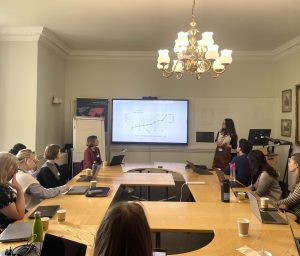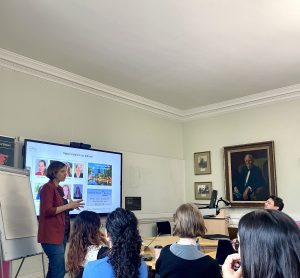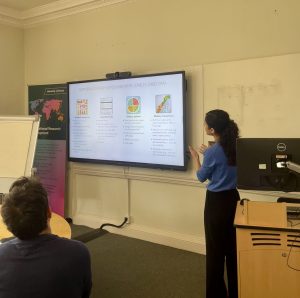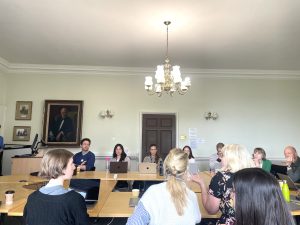On the 8th of May, we hosted a workshop in collaboration with Bristol Population Health Science Institute to explore how supermarket loyalty card data can support research into cancer and chronic disease prevention. Co-organised by Alisha and Anya, the workshop brought together researchers across epidemiology, psychology, economics, and public health.
The idea was to explore how we could meaningfully use loyalty card data to learn more about dietary exposures, chronic disease risk, and prevention. We set out to move beyond broad discussions and begin developing concrete, testable research questions — while also sketching out what it would take to make those projects feasible.
The day started with presentations on our ongoing research with supermarket loyalty card data.



———

The group activities generated a range of thoughtful ideas:
Gut health and early-onset colorectal cancer
The first group focused on the rise of early-onset colorectal cancer and emerging evidence around the role of gut microbiota. They proposed using supermarket data to investigate whether purchases of probiotic products (like yoghurt and fermented foods) might reveal a protective effect. They also discussed the feasibility of a smaller, restrospective study inviting participants from existing cancer research cohorts to donate their loyalty card data for research.
Evaluating digital health tools in practice
 Another group considered the use of NHS-recommended apps for people with pre-diabetes. Apps like Oviva give dietary advice (for example, to increase fibre, reduce UPFs), but it’s not clear if this translates into behaviour change—or into improved clinical outcomes like reduced HbA1c scores. Their proposal was to link app usage data with shopping data and (where possible) NHS health records, to understand whether the app is doing what it claims.
Another group considered the use of NHS-recommended apps for people with pre-diabetes. Apps like Oviva give dietary advice (for example, to increase fibre, reduce UPFs), but it’s not clear if this translates into behaviour change—or into improved clinical outcomes like reduced HbA1c scores. Their proposal was to link app usage data with shopping data and (where possible) NHS health records, to understand whether the app is doing what it claims.
Sugar, sweeteners, and health impacts
The third group focused on dietary exposures such as sugar and sweeteners, and their links to type 2 diabetes, prostate cancer, and metabolic health. They discussed linking loyalty card data to cohort studies like ALSPAC to explore exposure-outcome relationships over time, and proposed using loyalty card data to supplement prostate cancer dietary interventions by tracking changes in participants who had already donated samples.
———
On the whole, the ideas that emerged were ambitious yet grounded, and reflected a clear understanding of what loyalty card data can—and can’t—tell us. But there was also consensus that, if handled carefully and transparently, this kind of data could help fill important gaps—particularly in capturing how people respond to public health guidance, policy changes, or health diagnoses in real-world settings.
We closed the session by identifying potential funding opportunities from organisations such as Cancer Research UK, the World Cancer Research Fund, and the BBSRC Consumer Lab. Follow-up conversations are underway, and we’re beginning to scope out the next phase of this work.